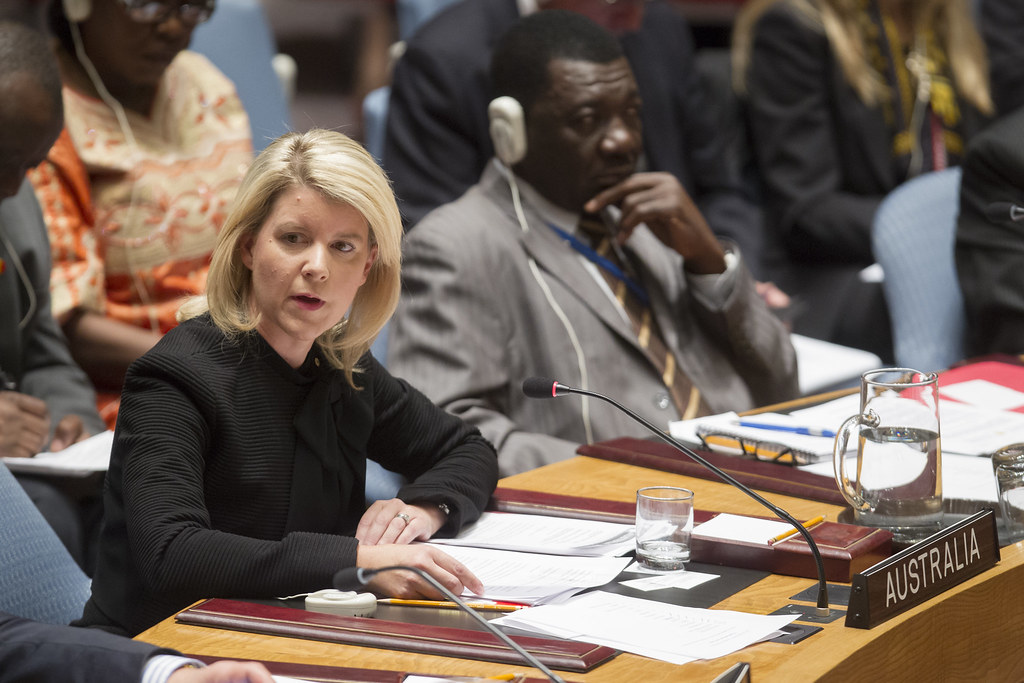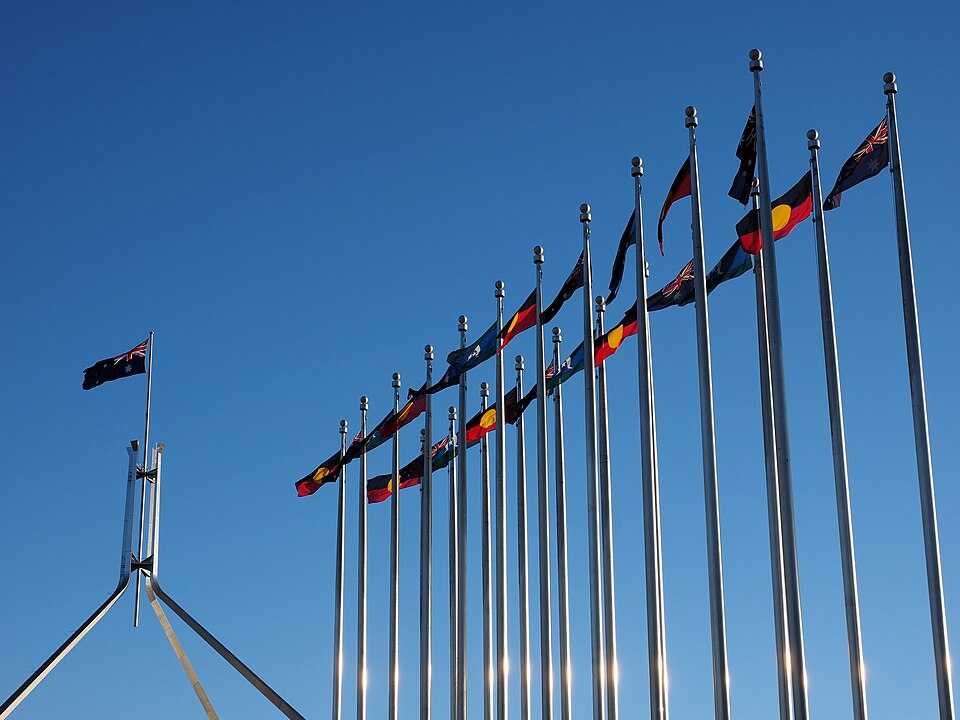Twenty-five years after its adoption, the Women, Peace and Security Agenda faces growing challenges amid rising conflict and climate crises. Transformative change hinges on centring frontline voices and moving beyond policy commitments to meaningful implementation.
On 31 October 2000, the UN Security Council adopted Resolution 1325 on Women, Peace, and Security (WPS) Agenda, recognising the importance of women and girls in achieving international peace and security. It urges states to increase women’s participation in conflict resolution and post-conflict recovery, and to incorporate gender perspectives in all UN peace and security efforts in order to prevent gender-based violence and protect the rights of women and girls. To implement this agenda, 112 UN member states have adopted a National Action Plan outlining their commitments and goals.
Twenty-five years after its adoption, the WPS Agenda stands at a crossroads. While it has achieved near-universal policy endorsement, its transformative potential is being undermined by the resurgence of armed conflict, the militarisation of peacebuilding, and the co-option of feminist language by states pursuing security through force. The adoption of so many National Action Plans is barely an indicator of the success of the agenda. UN Women indicates that since 2023, armed conflict has been on the rise, resulting in increased violence against women and girls. Despite the Agenda’s normative success, its impact on the ground remains uneven, and while some states endorse feminist peace in principle, they pursue militarised or exclusionary security policies in practice. The genocidal violence against women and girls in Gaza, the sexual and gender-based violence in Ukraine, and the apartheid of women in Afghanistan underscore that rhetorical commitments have not translated into structural accountability. And these are just three conflicts that feature prominently in the news cycle. Women are used as a systematic weapon of war in the Democratic Republic of Congo, are subjected to sexual slavery in Sudan, and face hunger due to climate change in rural India.
At the end of August 2025, the Australian Civil Society Coalition for Women, Peace and Security hosted over 60 civil society participants from 18 countries at the Asia-Pacific Regional Convening to assess the WPS Agenda at 25 and issue recommendations to addresses immediate challenges posed by growing conflict and the climate crisis. The Convening provided a stark reminder that the WPS Agenda’s biggest challenge is not a lack of policy frameworks, but the failure of implementation and imagination. The discussions revealed growing concern that the Agenda has been absorbed into bureaucratic routines rather than driving transformative change.
The Agenda faces significant challenges, most notably the inability to stop violence against women and girls. For example, as participants assessed the Agenda, women and girls in Gaza were at the centre of an escalating humanitarian crisis, facing physical harm at the hands of Israeli soldiers, lack of access to medical care, starvation, and displacement. Notably, while Israel is a party of the Convention on the Elimination of All Forms of Discrimination against Women, it does not have a National Action Plan on WPS.
Two additional challenges highlighted at the Convening were the need to connect climate disasters, conflict, and gender, and the ongoing issues of inclusivity and representation within the Agenda. Women and girls are disproportionately affected by climate-related insecurity, yet they are rarely involved in shaping climate adaptation or peacebuilding strategies. While the links between climate change and gendered insecurity are increasingly recognised, some participants questioned whether its inclusion in the WPS dilutes the focus and resources of the Agenda. At the same time, the Agenda continues to face questions about who is represented and whose voices are heard. Participants discussed the need to elevate the voices and traditional knowledges of Indigenous women, especially in relation to climate disaster and adaptation. Indigenous communities “bear the brunt of climate change.” Nevertheless, Indigenous women continue to be excluded from decision-making and overlooked when looking for solution to climate disaster and conflict. An inclusive approach to the WPS is central for its success, as exclusion or a narrow understanding of “woman” overlook the realities of those subjected to violence because of intersecting identities such as sexuality, disability, age, geographies and others.
The outcome of the Convening is nine recommendations addressing relevant stakeholders, including:
- Institutionalise & Resource WPS Commitments – This is not only a call to adopt National Action Plans but also to provide them with dedicated budgets. Lack of funding remains a key limitation to implementing the Agenda, and the absence of dedicated budgets limits accountability, allowing actors to list any gender-related activity in their WPS reports.
- Action to Prevent Sexual and Gender-Based Violence – In recognition that despite the commitment, action can be limited, actors must identify clear mechanisms to prevent, monitor, and report sexual and gender-based violence.
- Advance Inclusive and Intersectional WPS – All actors must ensure the representation of groups such as Indigenous women, youth, LGBTQIA+ people, people with disabilities, refugees, forced migrants, and diaspora women through quotas, and provide resources for travel, interpretation, childcare, family care, and accessibility to guarantee participation.
- Centre Indigenous Feminist Peacebuilding – Stakeholders must embed Indigenous feminist perspectives and establish and fund regional connections among Indigenous peacebuilders.
- Connect Climate-Gender-Justice with WPS – States must review their National Action Plans to include climate, peace, and security in ways that reflect gender justice, and fund regional climate justice initiatives.
- Build Bridges Between Domestic and Global Agendas – WPS principles must be embedded in all other national, domestic, and regional plans.
- Strengthen Regional & Cross-Movement Collaboration – Recognising the wealth of knowledge and expertise across regional organisations and stakeholders, it is essential to facilitate exchanges to share experiences and lessons learned.
- Re-Centre Feminist Peace & Demilitarisation – Participants noted that governments around the world are arming up to secure peace, but a militarised peace is not a feminist peace. The recommendation calls for diverting military spending towards inclusive peacebuilding, humanitarian response, climate resilience, and ending violence against women. Governments should also pay compensation for the environmental damage and human insecurity caused by their national and military interests.
- Invest in Intergenerational and Local Leadership – This includes creating space and funding opportunities for young women and emerging leaders.
The Asia–Pacific Convening made clear that the WPS Agenda remains an unfinished project. Its future lies not in the proliferation of National Action Plans but in the political will to realise their intent. The success of the WPS demands not only policy implementation but, above all, political courage. Building feminist peace requires rethinking who speaks, whose security counts, and how power is shared. As conflict and climate crises intensify, the next phase of WPS must centre the voices of women on the frontlines, including Indigenous women and young and emerging leaders, to ensure that peace is not only a promise of documents but a lived practice.
The final report of the Convening Summary can be accessed on the Australian Civil Society Coalition on WPS’ webpage in the coming weeks.
Dr Federica Caso is a lecturer in International Relations at La Trobe University. Her research examines gender and race in the military, war, and peacebuilding. She is currently pursuing a research project on Indigenous military integration and reconciliation in Australia, Canada, and New Zealand. Her book Settler Military Politics: Militarisation and the Aesthetics of War Commemoration was published in 2024 by Edinburgh University Press.
This article is published under a Creative Commons License and may be republished with attribution.




